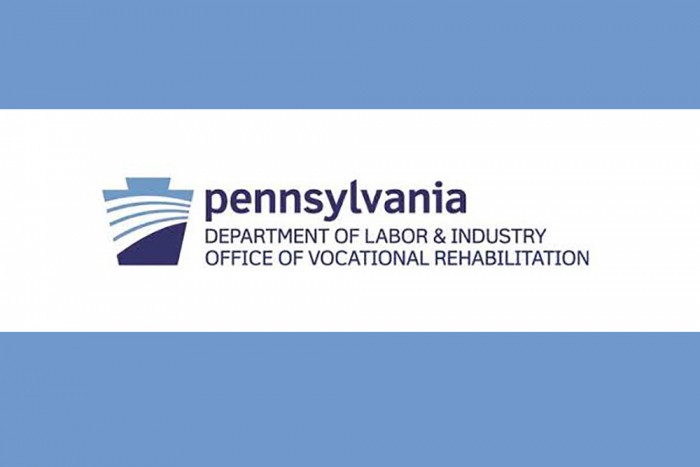OVR Guidance and Skype Meeting Planned
OVR has released guidance on the provision of vocational rehabilitation services during a period of state mandated mitigation strategies for slowing the spread of the Coronavirus (COVID-19).
All Commonwealth businesses should follow the most recent guidance issued by the Governor’s Office. Please reference the guide for Responding to COVID-19 in Pennsylvania for updated information.
Opportunities for staff and providers to ask questions and discuss the instructions given in the memos regarding OVR services during this time period will occur via Skype webinars on Tuesday, April 7, 2020. Information regarding these webinars will be forthcoming.
Please visit the Department of Community & Economic Development’s (DCED) website for resources for businesses affected by COVID-19, along with a current list of businesses allowed to operate and the waiver/exemption form (if applicable).
Vendors are responsible for ensuring that they are adhering to the Governor’s direction, universal precautions, and social distancing requirements. This information is intended to be a guide regarding the allowable services and service provision methodologies OVR will be adhering to during the COVID-19 mitigation response and does not apply to any other circumstance.
General Vocational Rehabilitation Services
Vocational Rehabilitation Services are considered an allowable business in accordance with the direction of the Governor’s office and as referenced on the DCED website. The nature of vocational rehabilitation services normally requires activities to be performed in person. Accordingly, OVR will be working with its vendor community to implement alternative service provision to allow services to continue where possible. However, it is the responsibility of the vendor to direct their staff in accordance with the requirements outlined by the Governor, their governing agencies, boards, commissions, and/or executive leadership.
For information regarding what services are able and unable to be performed at this time, refer to the above document. If you are unsure of how to proceed, please contact your local OVR District Office.
OVR Issues Guidance to Community Providers of Supported Employment Services
Office of Vocational Rehabilitation Executive Director Shannon Austin released guidance today (April 3, 2020) for providers about the provision of Supported Employment Services during a period of state-mandated mitigation strategies for slowing the spread of Coronavirus Disease-2019 (COVID-19).
The Pennsylvania Office of Vocational Rehabilitation (OVR) is committed to providing quality services to Pennsylvanians with disabilities. During this unprecedented time, the health and safety of our customers, staff, and community partners remain our top priority. All Commonwealth businesses should follow the most recent guidance issued by the Governor’s Office. Please reference the guide for Responding to COVID-19 in Pennsylvania for updated information. Please visit the Department of Community & Economic Development’s (DCED) website for resources for businesses affected by COVID-19, along with a current list of businesses allowed to operate and the waiver/exemption form (if applicable).
This document only applies to Supported Employment services. Supported Employment (SE) services may not be provided virtually unless specified. Activities, both direct and indirect, that are billable for SE services remain the same as outlined in the Billable Activities Reference for OVR Supported Employment Services section. During this time, specific SE services will be handled as outlined in the above referenced document.
CMS National COVID-19 Stakeholder Calls Recordings/Transcripts
The Centers for Medicare and Medicaid Services (CMS) has been hosting regular stakeholder calls for a variety of health care providers, including clinicians, hospitals, and other facilities in order to keep them updated on their COVID-19 efforts. Because so many are busy with COVID-19, these calls have been recorded. Members can access both the recordings of these calls as well as the transcripts. Both are available on the CMS Outreach and Education website.
Disability Rights Pennsylvania COVID 19 Resources Page
U of Pittsburgh Hosts Caregiving & COVID 19 Webinar
Join the University of Pittsburgh’s Center for Family Support on Tuesday, April 7, at 2:00 PM EST for a webinar discussing caregiving and COVID-19. This presentation is geared towards family caregivers of someone with a disability or chronic illness. We will be answering questions about how to best provide care for your loved one, and to take care of yourself as well, during this time.
Speakers include:
Kathleen Lindell, PhD, RN, ATSF, FAAN
Associate Professor of Medicine & Nursing
University of Pittsburgh Dorothy P. and Richard P. Simmons Center for Interstitial Lung Disease at UPMC
Gregory Cherpes, MD
Medical Director
Department of Human Services, Office of Developmental Programs
Nancy Murray, MS
Senior Vice President, Achieva
President, The Arc of Greater Pittsburgh
Participation is free, but registration is required.
There will be time at the end for Q&A with our presenters. There will be a limited ability to take questions during the webinar, so we highly encourage you to submit them ahead of time via email.
Or iPhone one-tap:
US: +12678310333,,880307670# or 8778535247,,880307670# (Toll Free)
Or Telephone:
Dial(for higher quality, dial a number based on your current location):
US: +1 267 831 0333 or 877 853 5247 (Toll Free)
Webinar ID: 880 307 670
Participant ID: 181,125
International numbers available: https://pitt.zoom.us/u/anVcg5B8S
Keeping Spirits Up During Pandemic
Treasury Encourages Businesses Impacted by COVID-19 to Use Employee Retention Credit
RCPA Requests Governor to Clarify Definition of Health Care Provider Under FFCRA
Over the past few weeks, RCPA has held numerous webinars, conference calls, and other outreach to our members regarding the COVID-19 pandemic. One of the major issues members are facing concerns the definition of what constitutes a health care provider under the Family First Coronavirus Response Act (FFCRA).
RCPA has received conflicting guidance on the definition of a health care provider; therefore, RCPA sought a legal interpretation from attorneys. The attorneys believe that RCPA mental health, behavioral health, drug and alcohol, and intellectual and physical disability providers are included in the broad language of the definition; however, RCPA and its members have been directed to consult with their own legal counsel or human resources team. With this ambiguity in the definition of what constitutes a health care provider, RCPA members are not able to make appropriate business and health related decisions for their employees and clients.
RCPA and its members need clarification; therefore, RCPA sent Governor Wolf a letter today, requesting him to resolve this issue. As the letter states, RCPA believes the Governor has the authority and may deem our members, who offer mental health, behavioral health, drug and alcohol, as well as intellectual and physical disability services, as essential health care providers.
Questions, please contact Jack Phillips.















